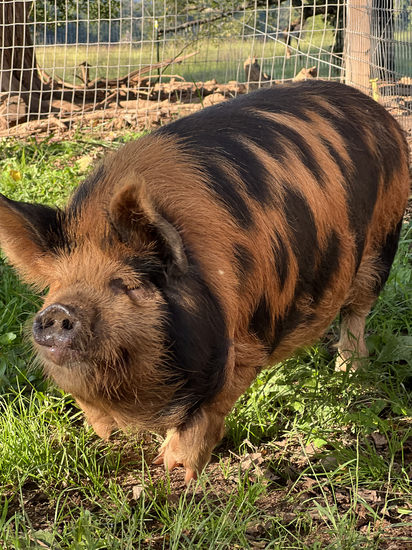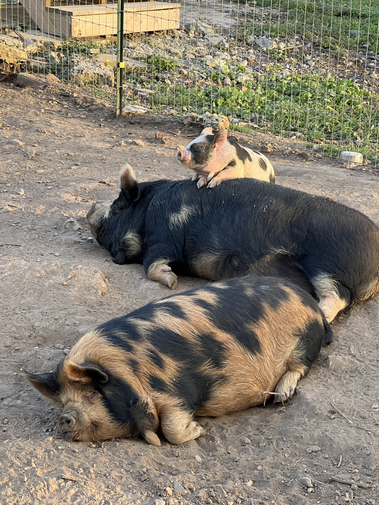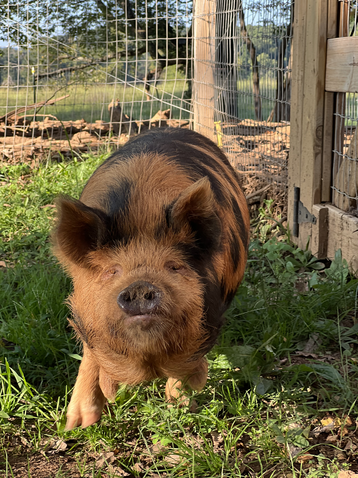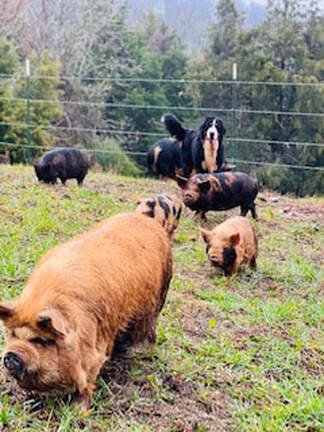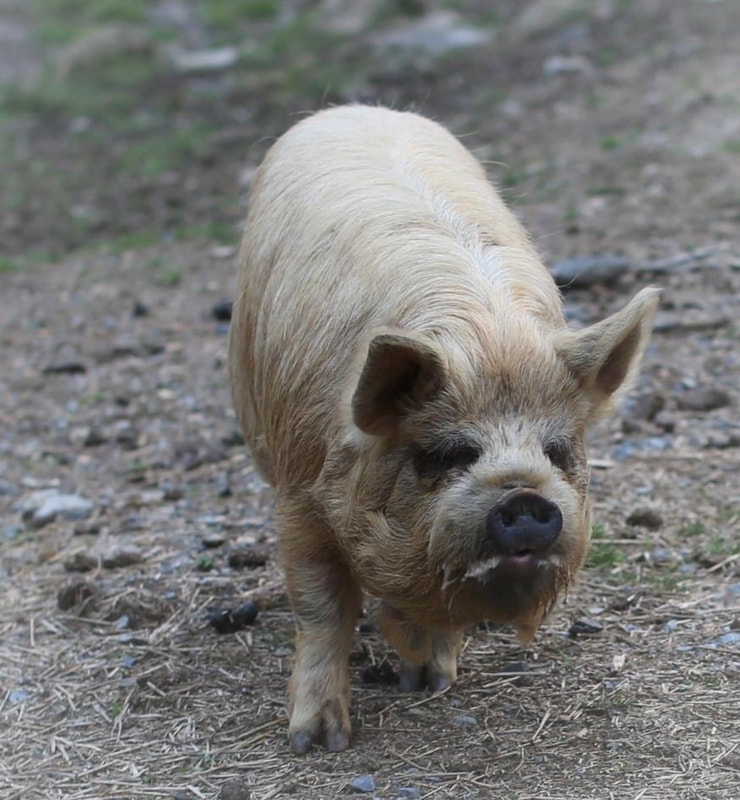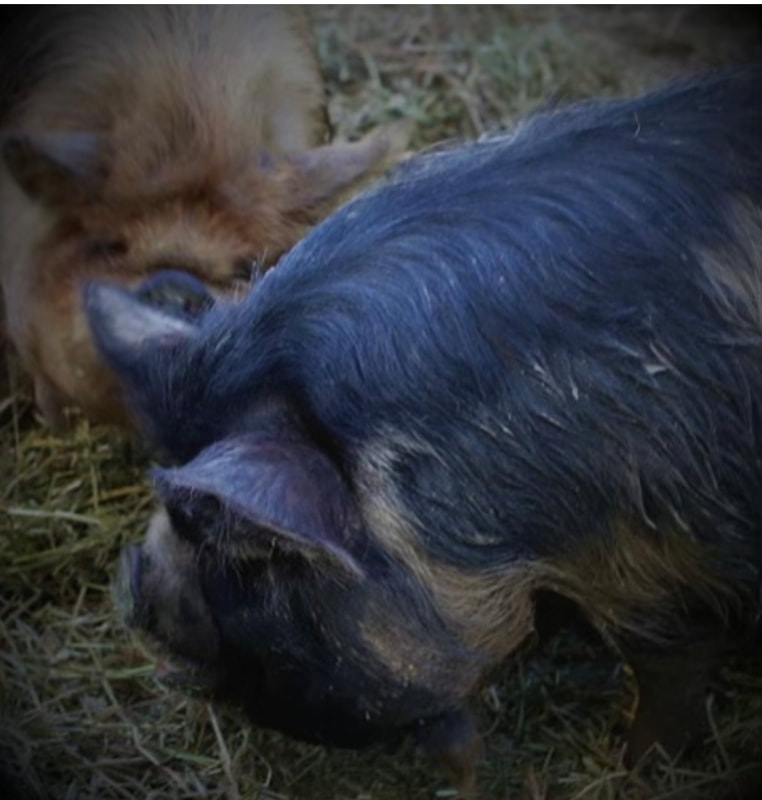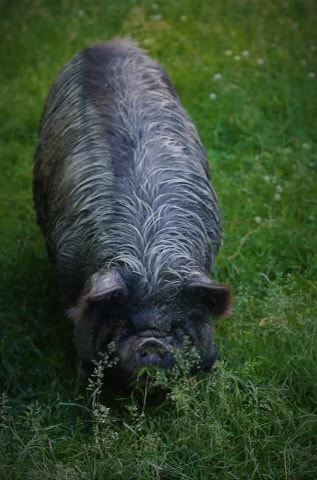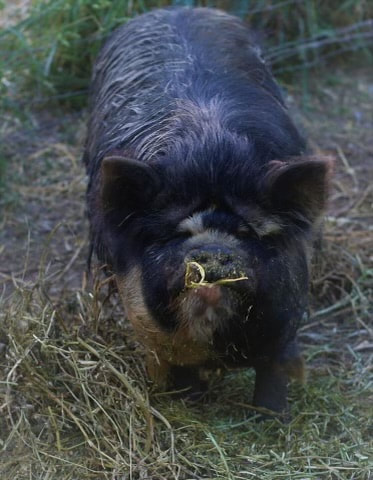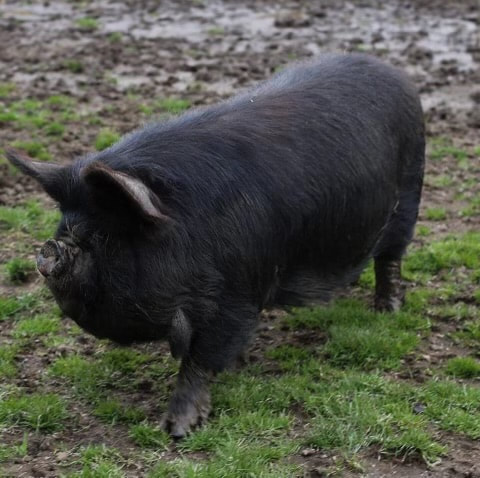Dry Valley Kune Kune Pigs
Registered
CONTACT ME
What is a Kunekune pig?
They are excellent grazers and pasture managers in places like orchards and vineyards. They also make excellent quality meat. As a heritage breed, the KuneKune meat is RED and deeply marbled, almost like fine steak. They also produce fine lard which can be used in cooking, baking and soap making.
Kunekune are the smallest breed of pigs. They can grow up to be about 4 feet and get between 130 – 220 lbs
They graze on grass and, providing you have enough of it, don’t really need anything else in the summer.
They can eat hay in winter.
They eat 1 lb of pig nuts per day (half a pound morning and evening). “Super Lean” is a good pig nut and stops them getting fat.
They need PLENTY of water.
They must not be given ANYTHING that’s gone through the kitchen (that’s the law) but they can eat fruit and vegetables from the garden.
Kunekune have lovely temperaments. They love having a fuss made of them and will lie for hours while you rub their tummies.
They live for 8 to 10 years.
They have to be wormed every 6 months by giving an injection you can do yourself. Provided you don’t take them anywhere, they don’t need any vaccinations.
They don’t have any special health issues other than a tendency to become overweight if their diet isn’t controlled carefully. Then there are a number of weight related issues.
Kunekune come in a variety of color; solid or combinations of black, brown, blond, ginger and white.
They vary from quite hairy to very hairy. Sometimes they lose their coats for a variety of reasons. Hopefully, it grows back.
They’re not escape artists; although it may be a good idea to put line of barbed wire on the bottom of a stock fence. They respect electric fences.
They are very strong and will tip over buckets and water troughs unless they are firmly fixed in place.
They need straw bedding.
They can get along with other animals after a suitable introduction.
They are excellent grazers and pasture managers in places like orchards and vineyards. They also make excellent quality meat. As a heritage breed, the KuneKune meat is RED and deeply marbled, almost like fine steak. They also produce fine lard which can be used in cooking, baking and soap making.
Kunekune are the smallest breed of pigs. They can grow up to be about 4 feet and get between 130 – 220 lbs
They graze on grass and, providing you have enough of it, don’t really need anything else in the summer.
They can eat hay in winter.
They eat 1 lb of pig nuts per day (half a pound morning and evening). “Super Lean” is a good pig nut and stops them getting fat.
They need PLENTY of water.
They must not be given ANYTHING that’s gone through the kitchen (that’s the law) but they can eat fruit and vegetables from the garden.
Kunekune have lovely temperaments. They love having a fuss made of them and will lie for hours while you rub their tummies.
They live for 8 to 10 years.
They have to be wormed every 6 months by giving an injection you can do yourself. Provided you don’t take them anywhere, they don’t need any vaccinations.
They don’t have any special health issues other than a tendency to become overweight if their diet isn’t controlled carefully. Then there are a number of weight related issues.
Kunekune come in a variety of color; solid or combinations of black, brown, blond, ginger and white.
They vary from quite hairy to very hairy. Sometimes they lose their coats for a variety of reasons. Hopefully, it grows back.
They’re not escape artists; although it may be a good idea to put line of barbed wire on the bottom of a stock fence. They respect electric fences.
They are very strong and will tip over buckets and water troughs unless they are firmly fixed in place.
They need straw bedding.
They can get along with other animals after a suitable introduction.


